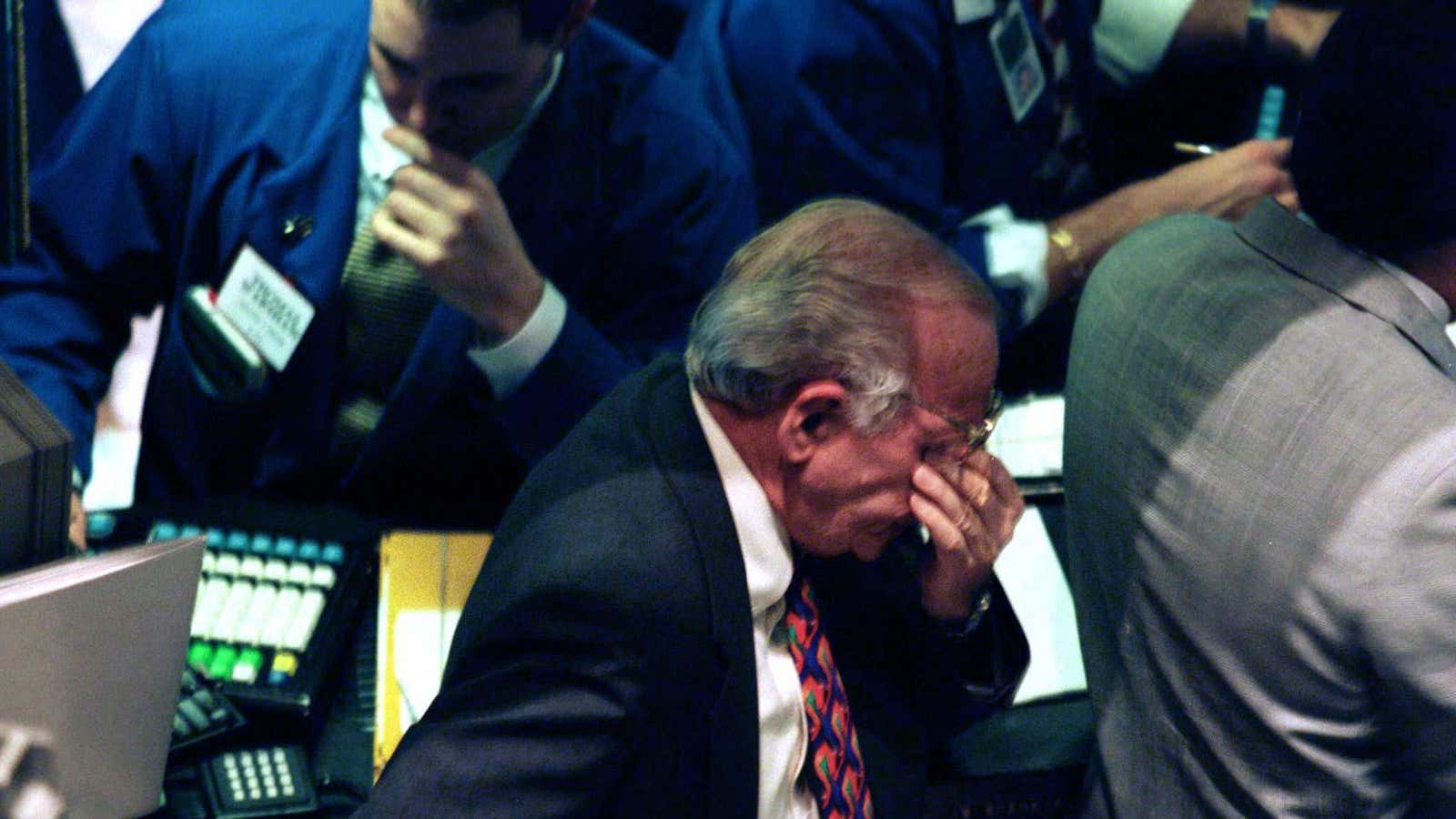US stocks are experiencing their worst week in two years. Today (Feb. 5), the Dow plunged more than 1,000 points—the largest point decline ever during a trading day. The S&P 500, the composite index of 500 large American companies, declined more than 4%. The Nasdaq also fell considerably.
The plummeting stock market has erased all of the gains made in 2018 and even some made during 2017, the year Donald Trump entered office. During his first year, stock markets hit unprecedented levels, routinely clearing never-before-reached all-market highs. While today’s record Dow point drop represents a 4.6% decline, it is not close to the biggest percentage fall, and pales compared to the falling market on Black Monday in 1987 or during the 2008 financial crisis.
The dive has pushed markets closer to a correction—defined as a 10% drop from their most recent high point. The S&P 500 and Nasdaq are down 0.92% and 1.51%, respectively in 2018. International markets have followed, with the FTSE 100, an index of the 100 largest companies listed in London, down more than 4% from the end of last year.
Markets are anticipating things to get worse. S&P, Dow, and Nasdaq futures, at the time of writing, are down more than 4%.
The VIX, the market’s most popular measure of expected volatility, has more than doubled in one week. The VIX index values represent the expected annualized change in the S&P 500 over the next 30 days, calculated with options-market data. After reaching historic lows and staying quiet for the better part of the past year, the measure, also known as the market’s “fear gauge,” has shot up by more than 300% in the past month.
Good news for the US economy appears to be part of what is inspiring the selloff. The January jobs report showed that continuing growth might finally be translating into rising wages—sparking worries that inflation (paywall) might be around the corner. Rising inflation might encourage central banks around the world to raise rates faster, pulling cheap money out of the economy.
